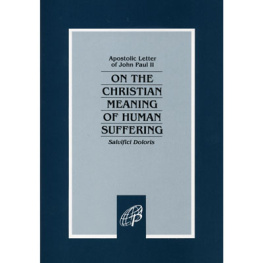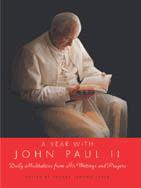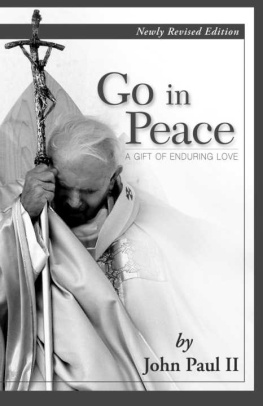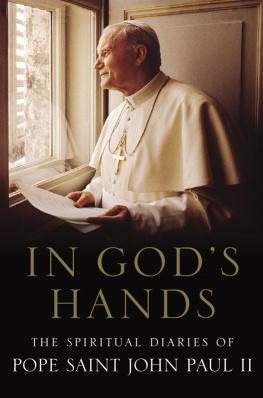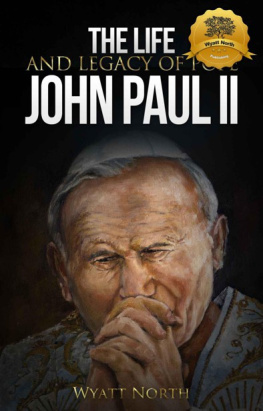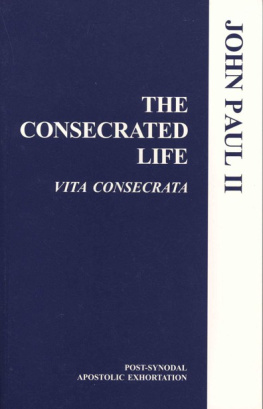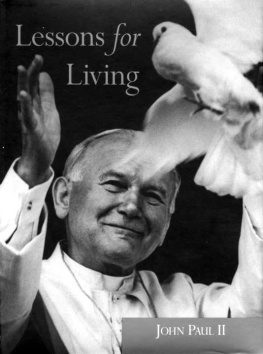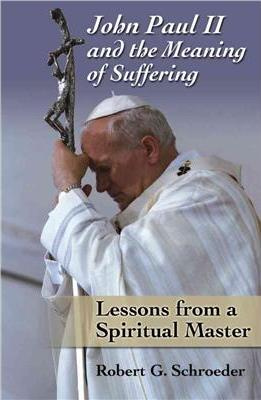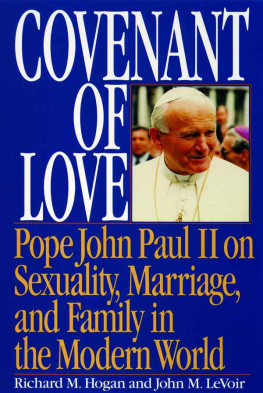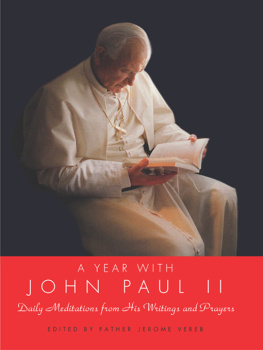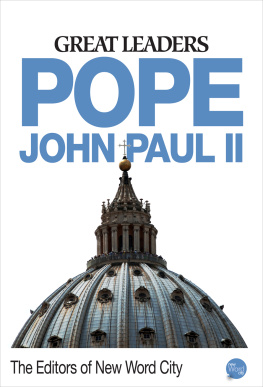APOSTOLIC LETTER
SALVIFICI DOLORIS
OF THE SUPREME PONTIFF
JOHN PAUL II
TO THE BISHOPS, TO THE PRIESTS,
TO THE RELIGIOUS FAMILIES
AND TO THE FAITHFUL
OF THE CATHOLIC CHURCH ON THE CHRISTIAN MEANING OF HUMAN SUFFERING
Venerable Brothers in the Episcopate and dear brothers and sisters in Christ, I. INTRODUCTION 1. Declaring the power of salvific suffering, the Apostle Paul says: "In my flesh I complete what is lacking in Christ's afflictions for the sake of his body, that is, the Church"(1). These words seem to be found at the end of the long road that winds through the suffering which forms part of the history of man and which is illuminated by the Word of God. These words have as it were the value of a final discovery, which is accompanied by joy. For this reason Saint Paul writes: "Now I rejoice in my sufferings for your sake"(2). The joy comes from the discovery of the meaning of suffering, and this discovery, even if it is most personally shared in by Paul of Tarsus who wrote these words, is at the same time valid for others. The Apostle shares his own discovery and rejoices in it because of all those whom it can helpjust as it helped himto understand the salvific meaning of suffering. 2. The theme of suffering-precisely under the aspect of this salvific meaning-seems to fit profoundly into the context of the Holy Year of the Redemption as an extraordinary Jubilee of the Church. And this circumstance too clearly favours the attention it deserves during this period. Independently of this fact, it is a universal theme that accompanies man at every point on earth: in a certain sense it co-exists with him in the world, and thus demands to be constantly reconsidered. Even though Paul, in the Letter to the Romans, wrote that "the whole creation has been groaning in travail together until now"(3), even though man knows and is close to the sufferings of the animal world, nevertheless what we express by the word "suffering" seems to be particularly essential to the nature of man. It is as deep as man himself, precisely because it manifests in its own way that depth which is proper to man, and in its own way surpasses it. Suffering seems to belong to man's transcendence: it is one of those points in which man is in a certain sense "destined" to go beyond himself, and he is called to this in a mysterious way. 3. The theme of suffering in a special way demands to be faced in the context of the Holy Year of the Redemption, and this is so, in the first place, because the Redemption was accomplished through the Cross of Christ, that is, through his suffering. And at the same time, during the Holy Year of the Redemption we recall the truth expressed in the Encyclical Redemptor Hominis: in Christ "every man becomes the way for the Church"(4). It can be said that man in a special fashion becomes the way for the Church when suffering enters his life. This happens, as we know, at different moments in life, it takes place in different ways, it assumes different dimensions; nevertheless, in whatever form, suffering seems to be, and is, almost inseparable from man's earthly existence. Assuming then that throughout his earthly life man walks in one manner or another on the long path of suffering, it is precisely on this path that the Church at all times-and perhaps especially during the Holy Year of the Redemption-should meet man. Born of the mystery of Redemption in the Cross of Christ, the Church has to try to meet man in a special way on the path of his suffering. In this meeting man "becomes the way for the Church", and this way is one of the most important ones. 4. This is the origin also of the present reflection, precisely in the Year of the Redemption: a meditation on suffering. Human suffering evokes compassion; it also evokes respect, and in its own way it intimidates. For in suffering is contained the greatness of a specific mystery. This special respect for every form of human suffering must be set at the beginning of what will be expressed here later by the deepest need of the heart, and also by the deep imperative of faith. About the theme of suffering these two reasons seem to draw particularly close to each other and to become one: the need of the heart commands us to overcome fear, and the imperative of faithformulated, for example, in the words of Saint Paul quoted at the beginningprovides the content, in the name of which and by virtue of which we dare to touch what appears in every man so intangible: for man, in his suffering, remains an intangible mystery. II. THE WORLD OF HUMAN SUFFERING 5. Even though in its subjective dimension, as a personal fact contained within man's concrete and unrepeatable interior, suffering seems almost inexpressible and not transferable, perhaps at the same time nothing else requires as much as does suffering, in its "objective reality", to be dealt with, meditated upon, and conceived as an explicit problem; and that therefore basic questions be asked about it and the answers sought. It is evident that it is not a question here merely of giving a description of suffering. There are other criteria which go beyond the sphere of description, and which we must introduce when we wish to penetrate the world of human suffering. Medicine, as the science and also the art of healing, discovers in the vast field of human sufferings the best known area, the one identified with greater precision and relatively more counterbalanced by the methods of "reaction" (that is, the methods of therapy). Nonetheless, this is only one area. The field of human suffering is much wider, more varied, and multi-dimensional. Man suffers in different ways, ways not always considered by medicine, not even in its most advanced specializations. Suffering is something which is still wider than sickness, more complex and at the same time still more deeply rooted in humanity itself. A certain idea of this problem comes to us from the distinction between physical suffering and moral suffering. This distinction is based upon the double dimension of the human being and indicates the bodily and spiritual element as the immediate or direct subject of suffering. Insofar as the words "suffering" and "pain", can, up to a certain degree, be used as synonyms, physical suffering is present when "the body is hurting" in some way, whereas moral suffering is "pain of the soul". In fact, it is a question of pain of a spiritual nature, and not only of the "psychological" dimension of pain which accompanies both moral and physical suffering The vastness and the many forms of moral suffering are certainly no less in number than the forms of physical suffering. But at the same time, moral suffering seems as it were less identified and less reachable by therapy. 6. Sacred Scripture is a great book about suffering. Let us quote from the books of the Old Testament a few examples of situations which bear the signs of suffering, and above all moral suffering: the danger of death(5), the death of one's own children(6) and, especially, the death of the firstborn and only son(7); and then too: the lack of offspring(8), nostalgia for the homeland(9), persecution and hostility of the environment(10), mockery and scorn of the one who suffers(11), loneliness and abandonment(12); and again: the remorse of conscience(13), the difficulty of understanding why the wicked prosper and the just suffer(14), the unfaithfulness and ingratitude of friends and neighbours(15); and finally: the misfortunes of one's own nation(16). In treating the human person as a psychological and physical "whole", the Old Testament often links "moral" sufferings with the pain of specific parts of the body: the bones(17), kidneys(18), liver(19), viscera(20), heart(21). In fact one cannot deny that moral sufferings have a "physical" or somatic element, and that they are often reflected in the state of the entire organism. |

